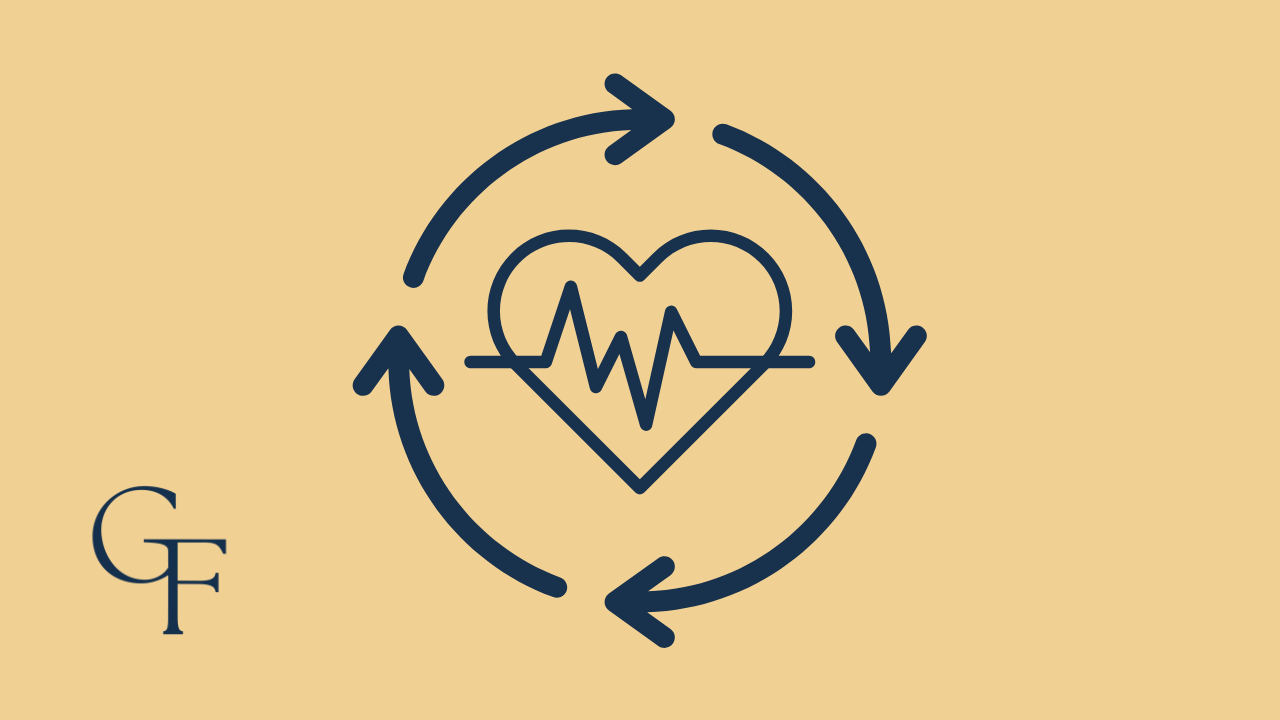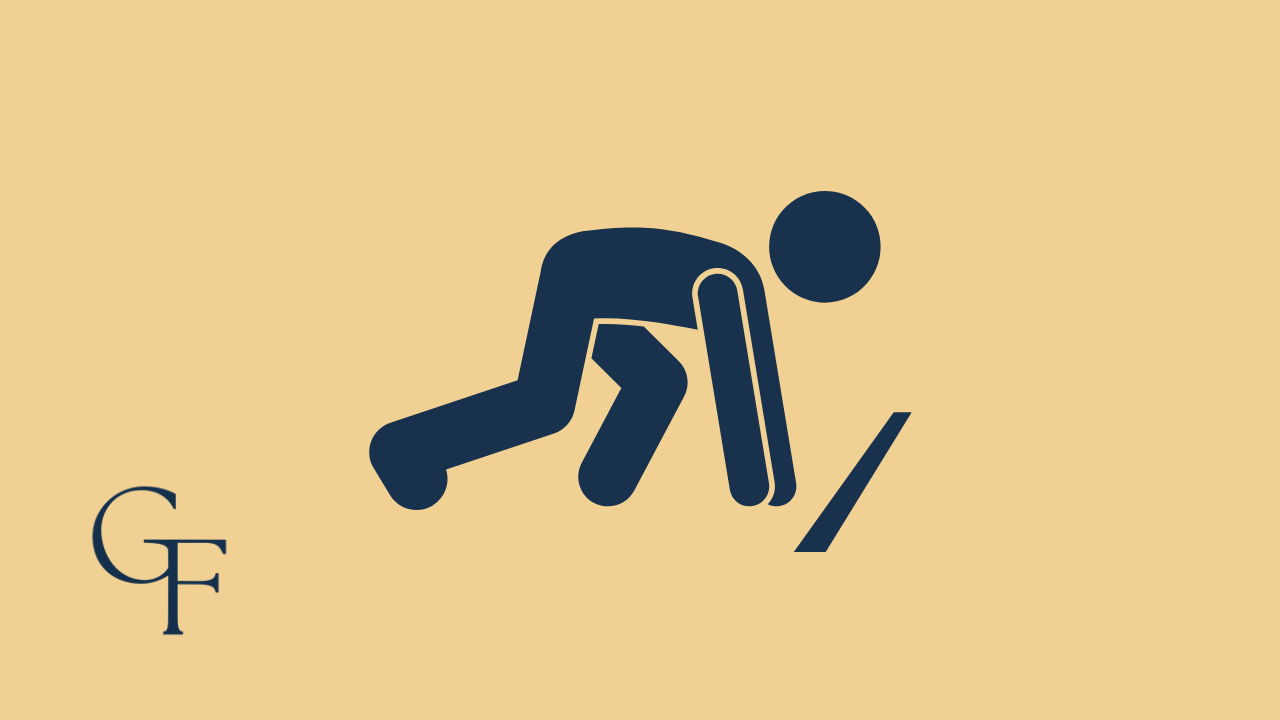
Setting the Foundation

In the Gospel, according to Matthew (the first book of the Bible's New Testament and the Gospel of Jesus Christ), Jesus delivers his famous Sermon on the Mount. During this event, he teaches many lessons that are said to have astonished the crowds.
The very last portion of the sermon consisted of Jesus talking about building our house on the rock:
Nothing I am about to share with you could compare to what Jesus said or taught in His sermons and throughout His life.
However, I want to focus on this passage in the book of Matthew because it highlights an important concept...
While Jesus primarily discusses faith and trust in God, this portion of His sermon can apply to many areas where we would like to improve.
The key point here is that the strength of our foundation will determine our ability to succeed in fitness and health. Doing things correctly often requires slowing down, being patient and resilient, and showing a fair bit of grit.
We can't have everything we want immediately, and anyone who tells you otherwise is not being honest. Long-lasting success often requires delaying gratification and refraining from taking shortcuts.
This couldn't be more true when it comes to getting fit.
Trust me, the best things in life that are built to last come with time, patience, and foresight. Nobody knew this better than Jesus.
Why Work Out to Stay in Shape?

You likely came to this post (or perhaps it came to you) to learn HOW to stay consistent with working out. However, we must discover WHY we ought to work out in the first place.
You may already have your reason, but here are my thoughts if you don't (or would like to hear my perspective).
The Apostle Paul writes the following in his first letter to the Corinthians:
Now, Paul isn't specifically talking about physical fitness here, however he is certainly dropping some sage wisdom in that how we utilize our bodies as vessels of God's Holy Spirit is essential to fulfilling our purpose on this earth.
Fulfilling our purpose in life isn't merely about "feeling good about ourselves." It's about contributing to a cause greater than ourselves.
Interestingly, maintaining a healthy body, which serves as a vessel for God's Spirit to move through us, is more important than we often realize.
Now that we've established this let's discuss HOW to maintain a consistent exercise routine.
Know Where You're Starting From

If driving ships across God's earth for the U.S. Navy taught me anything, it's that if we are unsure of our current position, it isn't easy to plan where we want (or need) to go from there.
For instance, to complete a marathon without walking, you must know your current running capacity before training for a 26.2-mile race.
We all need to assess our current situation honestly. This is the stage where we often feel the most motivated because it's usually tied to the reason we want to improve our fitness level in the first place.
For one reason or another, we want to improve our body's health and enjoy the benefits of a great exercise routine, such as looking, feeling, and living better.
It's essential to remember that getting in shape quickly may take longer than a few weeks (depending on our starting point). However, that's okay because if we're not going to do something right, we might as well not do it at all.
Remember, my friend, slow and steady, often wins the race.
Adopt a Fitness Routine That's Realistic

Once you know where you're starting from, ask yourself (and remain honest) what you're capable of doing now. Living in the 21st century has made this much easier than ever before.
For example, my wife and I are training for a marathon at the time of this writing. Using apps to help us build and stick to our training regimen has proven useful for organizing and tracking workouts and monitoring our physical capabilities each week.
So often, we want to conquer the world and establish a new routine right out of the gate, only to abandon it in a few months or weeks because it's not realistic to maintain. This is why we see so many folks in the gym at the start of each new year, only to drop out relatively soon.
Build an Exercise Routine That Excites & Engages You

If the prospect of working out or training your body for something doesn't excite you in some capacity, then I don't believe you can succeed in the long term.
I recently started training in Brazilian Jiu-Jitsu (BJJ). It's been a few months, and I have discovered a whole new world of fitness and mental stimulation that I realize I have been missing out on.
Many men and women train in martial arts because it provides them with an outlet to stay in shape and remain mobile. It also engages the brain by forcing them to think quickly and assess their opponent's next move.
Additionally, I have found that the BJJ community is filled with wonderful people who want to learn and improve together. Simply put, they are passionate about the sport, whether they train a handful of times a week, compete professionally, or everything in between.
Try to find something that excites and engages you beyond merely going to a gym and lifting weights or heading to a trail and running alone. For some, community and mental stimulation are critical to maintaining a consistent exercise routine.
Of course, for many others, merely entering a gym and hearing the sound of weights hitting the racks and floors is enough to instill peace and motivation in their minds.
Perhaps that quiet solitude at 5:00 a.m., as you lace up your favorite running shoes in anticipation of logging miles for your daily run, settles your mind.
Whatever it is, understand yourself and what matters to you, and then create a rewarding exercise schedule. If it gives you genuine enjoyment, you are likelier to stick with it long-term.
Plan Properly & Overcome Obstacles

As you exercise regularly and try to stay consistent, you'll likely have to balance doing so amidst a busy schedule.
Identify and tackle minor obstacles that could disrupt your exercise routine, like forgetting your workout clothes or selecting a gym that's too far from home.
I know this may seem simple, but believe me when I say that nothing can derail an exercise plan (or any consistent habit) more quickly than minor inconveniences that gradually undermine what you're striving to build.
It could mean choosing a less robust gym closer to your work, allowing you to get there quickly and more consistently to crush your workouts after leaving the office.
Or maybe you need to stage your workout clothes and gym equipment the night before so they are ready for you early the following day. Work smarter, not harder.
We can't always have our cake and eat it too. At the end of the day, the workouts must get done!
Find ways to overcome excuses, such as lack of time or energy. If you cannot fit physical training into your busy schedule, I'm sorry, my friend, but you need to overhaul your schedule and completely rethink your approach.
Perhaps it's my military background, but there's a reason why many of the most efficient and effective people wake up early in the morning to fit in their workouts: often, it's the only time they can carve out for themselves to do so.
When the rest of the world is sleeping, we're training.
This means that once the kids go to bed and your spouse's "love tank" is filled, it's time to get after it. First, perform your familial responsibilities, then lace up your shoes and start double-timing it.
Similarly, alternate certain daily activities by incorporating physical activity into daily life. For example, you could take the stairs instead of the elevator or maybe get up and walk around instead of sitting in the breakroom on your phone.
Also, plan to overcome unexpected obstacles like inclement weather or travel. For myself, this means grabbing a jump rope, some adjustable weights that I keep in my house, and various resistance bands to crush a full-body HIIT workout quickly.
The point is to find an adequate backup plan for those days when Satan wants to ruin your workout plans.
Don't give him the satisfaction!
Here is an example of HIIT-style workouts that incorporate weights and jump rope.
Get Started Safely & Listen to Your Body

If you have health concerns, seek medical clearance before starting a new exercise program. Warm up with dynamic stretches and a slower, more manageable version of the upcoming exercise. Cool down after your workout to prevent soreness and injuries.
Pay attention to warning signs, such as fatigue or soreness, and adjust your routine accordingly. Prioritize recovery and rest to prevent overtraining and injury.
Prioritize Diet & Nutrition

I have written a separate article about effective weight management, which breaks down calories and macronutrients:
Success in health and fitness is contingent upon the relationship between physical activity and dietary practices. This makes perfect sense because what we consume (calories in) must directly serve what we expend via exercise (calories out).
It is often said that 80% of health success directly correlates to dietary practices, and I'm certainly inclined to agree.
I think it is essential to consider the quality of our diet, not just for managing weight but also for overall health. Carbohydrates, fats, and proteins are important nutrients, but we shouldn't overlook micronutrients like vitamins and minerals in virtually all foods.
While it's challenging to measure the specific impact of micronutrients on weight management as they don't contain calories per se, focusing on the quality and quantity of food is essential for healthy weight management and long-term well-being.
Improve Your Mental Health

Regular exercise can improve mental health, including reducing symptoms of anxiety and depression. Remaining active over prolonged periods can also improve emotional health, including increasing self-esteem and confidence.
The mental health crisis that we face nowadays is growing out of control, and I firmly believe that there is a direct correlation between poor mental health and sedentary, non-active lifestyles coupled with poor nutritional habits.
Basic science tells us that essential chemicals like endorphins, serotonin, and dopamine are released when we participate in physical activity. This can be the body's natural way of improving mental health rather than relying on manmade drugs.
Of course, I'm not a medical professional (just a guy on the internet with many thoughts on almost everything).
However, I believe medications can be a great way to "get our heads above water" when we feel like we're sinking both mentally and emotionally.
Regarding a long-term solution, I believe that physical activity combined with a strong spiritual and prayer life can genuinely heal the issues that provoke our inner demons, which we all experience to some extent.
Make It a Lifestyle

The American Academy of Family Physicians (AAFP) reports that cardiovascular disease (CVD) is the leading cause of death in the United States. One-third of these deaths may be preventable through healthy lifestyle choices, including diet and physical activity.
To succeed in physical fitness, we must establish life rules that help us form healthy habits.
This will likely vary depending on your specific health or athletic goals. However, the only way to enjoy the benefits of progress in physical training is by setting healthy boundaries and implementing realistic controls in our lives that shape how we live and conduct ourselves.
Consistency is key to reaping the health benefits of exercise, including improved physical fitness and mental health.
Incorporating exercise meaningfully into our lives is essential for maintaining the temple that God has entrusted to us.


